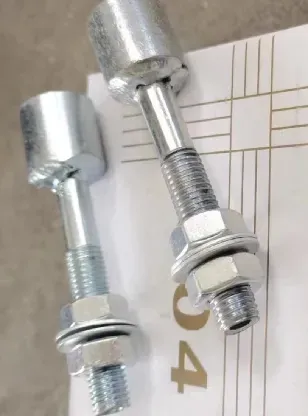loading...
- No. 9, Xingyuan South Street, Dongwaihuan Road, Zaoqiang County, Hengshui, Hebei, China
- admin@zjcomposites.com
- +86 15097380338
- Welcome to visit our website!
Innovative Multiport Valve Design for Enhanced Performance in FRP Vessels and Applications
The Application of FRP Vessels with Multiport Valves in Modern Industries
Fiberglass Reinforced Plastic (FRP) vessels have gained significant traction across various industries due to their unique properties, such as high strength-to-weight ratio, corrosion resistance, and versatility. When combined with multiport valves, these vessels offer efficient solutions for handling fluids in a wide array of applications. This article explores the advantages and potential applications of FRP vessels equipped with multiport valves.
Understanding FRP Vessels
FRP is a composite material made of a polymer matrix reinforced with fibers, typically glass. The use of FRP in the manufacturing of vessels provides significant benefits over traditional materials like steel or concrete. FRP vessels are lightweight, which simplifies handling and installation. Moreover, they resist corrosion from chemicals and environmental factors, significantly reducing maintenance costs and extending the lifespan of the equipment. As a result, FRP vessels are ideal for applications in chemical processing, wastewater treatment, and various industrial sectors.
The Role of Multiport Valves
Multiport valves are precision-engineered valves that allow for the control and direction of fluid flow from one location to several outlets, or vice versa. Their design typically includes multiple ports, enabling them to streamline processes and enhance operational efficiency. In combination with FRP vessels, multiport valves can optimize fluid management systems by enabling quick and accurate switching between different flow paths.
Advantages of Combining FRP Vessels with Multiport Valves
1. Enhanced Process Efficiency The integration of multiport valves with FRP vessels allows for a seamless transition between different operational modes, such as filling, emptying, or recirculation. This capability reduces downtime and optimizes production schedules in industrial processes.
2. Space-Saving Design The compact design of multiport valves minimizes the footprint of fluid handling systems. When paired with lightweight FRP vessels, this can lead to significant savings in space, making it easier to fit complex systems in confined areas.
3. Corrosion Resistance Both FRP vessels and multiport valves can be manufactured from materials specifically designed to resist corrosion. This is particularly important in industries dealing with aggressive chemicals, ensuring that the systems remain functional and safe over time.
frp vessel with multiport valve

4. Cost-Effectiveness Though the initial investment in FRP vessels and multiport valves might be higher than traditional materials, the long-term savings in maintenance, downtime, and replacement costs make them a cost-effective choice for many operations.
Applications Across Industries
FRP vessels with multiport valves are widely used in various sectors, including
- Chemical Processing They handle aggressive chemicals with minimal risk of corrosion and leakage, providing safe transport and storage solutions.
- Water Treatment The combination is ideal for filtration systems and chemical dosing applications, where precise control over fluid flow is paramount.
- Food and Beverage In this industry, hygiene and safety are critical. FRP vessels equipped with multiport valves can facilitate the safe transportation and mixing of ingredients without contamination.
- Pharmaceuticals The need for sterile conditions makes the integration of non-corrosive FRP vessels and multiport valves a compelling choice for fluid management in pharmaceutical manufacturing.
Conclusion
The synergy of FRP vessels and multiport valves creates a robust solution for modern fluid handling challenges. Their collective benefits—enhanced efficiency, space-saving design, corrosion resistance, and cost-effectiveness—make them indispensable in various industries. As technology advances, the adoption of FRP materials and innovative valve designs is likely to expand, reinforcing their role in the future of industrial fluid management. Companies looking to improve their operational efficiency and reduce long-term costs should seriously consider this combination.
-
Premium FRP Handrail for All ApplicationsNewsAug.29,2025
-
Low Maintenance FRP Mini Mesh Grating ProductsNewsAug.29,2025
-
Innovative FRP Square Tubes for Modern Industrial SolutionsNewsAug.29,2025
-
FRP Water Storage Tanks Wholesale Solutions for Bulk BuyersNewsAug.29,2025
-
FRP Molded Grating Solutions for Diverse Industrial ApplicationsNewsAug.29,2025
-
Construction Advancements Through FRP Pultruded ProfilesNewsAug.29,2025
-
Why Choose FRP Railings, Guardrails, and Handrail Systems?NewsAug.29,2025
